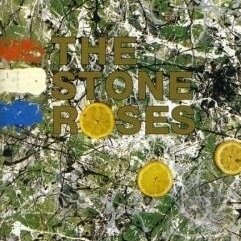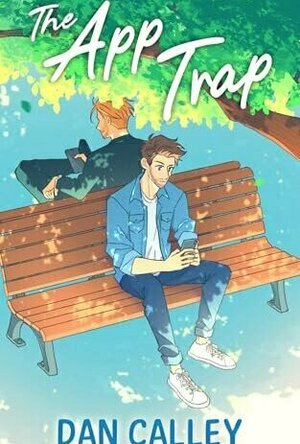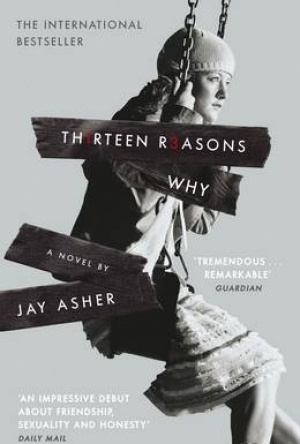Search
Search results

Scott (Owatonna U Hockey #2)
RJ Scott and V.L. Locey
Book
What happens when you try to fix the past and end up threatening your future? Scott is...
Sports Romance Contemporary M/M
Hazel (2934 KP) rated Their Little Secret in Books
Nov 7, 2021
Review of Audiobook
This is my first foray into the world of audiobooks and I am so pleased I chose one of Mark Billingham's books to introduce me to the world of audio because, once again, he and Tom Thorne did not disappoint.
I was engrossed from the start and this didn't let up until the end. I never thought I would be able to get into a book that I wasn't actually physically holding but there was no such problem with this and I took every opportunity to put my headphones in and get lost in this book of intrigue.
I am already familiar with many of the main characters so it was like putting on a pair of comfy slippers being back amongst some good friends that I have grown quite attached to over the years. The narration is done by Mark himself and whilst he changed the voices slightly, he didn't put on a female voice for those particular parts (thank goodness!) so it did make it a little more difficult to distinguish between them but this didn't last long and didn't detract from my listening experience.
The plot is complex and compelling - what is it about a suicide that has Thorne intrigued? How is a murder in Margate connected? What does this have to do with a conman? Where does Sarah and her son Jamie come into this? So many secrets, so many lies and so much intrigue.
I admit that I was worried I wouldn't enjoy an audio book quite as much as an actual book but Mr Billingham removed that doubt with this excellent story that I would definitely recommend to lovers of crime thrillers and I have to thank Hachette Audio via Secret Readers Project for my audio book in return for an honest, unbiased and unedited review.
I was engrossed from the start and this didn't let up until the end. I never thought I would be able to get into a book that I wasn't actually physically holding but there was no such problem with this and I took every opportunity to put my headphones in and get lost in this book of intrigue.
I am already familiar with many of the main characters so it was like putting on a pair of comfy slippers being back amongst some good friends that I have grown quite attached to over the years. The narration is done by Mark himself and whilst he changed the voices slightly, he didn't put on a female voice for those particular parts (thank goodness!) so it did make it a little more difficult to distinguish between them but this didn't last long and didn't detract from my listening experience.
The plot is complex and compelling - what is it about a suicide that has Thorne intrigued? How is a murder in Margate connected? What does this have to do with a conman? Where does Sarah and her son Jamie come into this? So many secrets, so many lies and so much intrigue.
I admit that I was worried I wouldn't enjoy an audio book quite as much as an actual book but Mr Billingham removed that doubt with this excellent story that I would definitely recommend to lovers of crime thrillers and I have to thank Hachette Audio via Secret Readers Project for my audio book in return for an honest, unbiased and unedited review.
Greek mythology is my catnip, and Elektra was the only thing I wanted to listen to for the week it took me to finish it (work and families can be really inconvenient sometimes!).
Elektra by Jennifer Saint is told from three female perspectives: Clytemnestra, the sister of Helen, the wife of Agamemnon; Cassandra, a Princess of Troy; and Elektra, Clytemnestra and Agamemnon’s youngest daughter.
The things these women had to put up with! Clytemnestra’s husband Agamemnon, acts like a madman (but it’s ok, it’s all for the Gods!) and she’s supposed to accept it all. Except she doesn’t.
Cassandra is treated like a madwoman after she’s cursed by Apollo. She can tell the future, but no-one believes her. So they only have themselves to blame when Troy is destroyed.
And then there’s Elektra. She seems to have fully bought into the whole “men/ daddy knows best, and anyway, he’s a hero” story. She’s a young woman who adores her father and believes he can do no wrong. She can’t understand her mothers reaction to the sacrifice of her eldest daughter and Elektra’s sister. Can we blame Elektra though? Probably. She certainly knows how to play the long game.
The narrators were well chosen, and really helped to add life and vigour to the characters of the three women. Listening to these Greek myths haas added something extra special to the stories - after all, I’ve read these stories so many times over the years in different forms. And I still can’t see a time where they’ll get old. In every retelling there’s a different angle, and I don’t think I can express enough how much I enjoy the story told from the women’s points of view.
Elektra is just fabulous - a timeless story about strong women.
Elektra by Jennifer Saint is told from three female perspectives: Clytemnestra, the sister of Helen, the wife of Agamemnon; Cassandra, a Princess of Troy; and Elektra, Clytemnestra and Agamemnon’s youngest daughter.
The things these women had to put up with! Clytemnestra’s husband Agamemnon, acts like a madman (but it’s ok, it’s all for the Gods!) and she’s supposed to accept it all. Except she doesn’t.
Cassandra is treated like a madwoman after she’s cursed by Apollo. She can tell the future, but no-one believes her. So they only have themselves to blame when Troy is destroyed.
And then there’s Elektra. She seems to have fully bought into the whole “men/ daddy knows best, and anyway, he’s a hero” story. She’s a young woman who adores her father and believes he can do no wrong. She can’t understand her mothers reaction to the sacrifice of her eldest daughter and Elektra’s sister. Can we blame Elektra though? Probably. She certainly knows how to play the long game.
The narrators were well chosen, and really helped to add life and vigour to the characters of the three women. Listening to these Greek myths haas added something extra special to the stories - after all, I’ve read these stories so many times over the years in different forms. And I still can’t see a time where they’ll get old. In every retelling there’s a different angle, and I don’t think I can express enough how much I enjoy the story told from the women’s points of view.
Elektra is just fabulous - a timeless story about strong women.
ClareR (6037 KP) rated How Beautiful We Were in Books
Jan 25, 2022
How Beautiful We Were is the story of an African village (Kosawa - it’s fictitious) and its environmental destruction and pollution by an American oil company. Their water and land is contaminated. Children die from drinking poisoned water, they can no longer grow crops as their farmland is infertile. Thinking that they can get some help from the government, some men go to appeal their leader in the capital city, but they disappear after being arrested. The country’s dictator is only out for the money and profit, and these uneducated villagers are expendable.
It’s not until American citizens see the slaughter of the villagers that action is taken. However, even after promises of reparation, the oil company doesn’t pay up, and more deaths follow.
Thule is a fascinating character. She leaves to study in the US for the sake of her village - even though she doesn’t want to leave. But she wants to learn as much as possible so that she can help her friends and family. She studies, she gets involved in similar campaigns in America, and then comes home to use that knowledge. She’s so selfless: she has the opportunity to make a life in New York and never return to a place where her life will be in danger, but she goes home.
I really liked the way that this novel was set out, and it worked so well on audiobook. The Children, The Young Men and Thule chapters were read by different people, and it really helped to put me in their situation. Listening to the reactions of the children and young men in ‘their’ voices, and Thule’s experiences in ‘her’ voice, was what made this all the more special and affecting for me.
Recommended.
It’s not until American citizens see the slaughter of the villagers that action is taken. However, even after promises of reparation, the oil company doesn’t pay up, and more deaths follow.
Thule is a fascinating character. She leaves to study in the US for the sake of her village - even though she doesn’t want to leave. But she wants to learn as much as possible so that she can help her friends and family. She studies, she gets involved in similar campaigns in America, and then comes home to use that knowledge. She’s so selfless: she has the opportunity to make a life in New York and never return to a place where her life will be in danger, but she goes home.
I really liked the way that this novel was set out, and it worked so well on audiobook. The Children, The Young Men and Thule chapters were read by different people, and it really helped to put me in their situation. Listening to the reactions of the children and young men in ‘their’ voices, and Thule’s experiences in ‘her’ voice, was what made this all the more special and affecting for me.
Recommended.
Hazel (2934 KP) rated The Hidden Village (Wartime Holland Book 1) [Audiobook] in Books
Jan 16, 2022
This is an engaging and compelling story of what life was like in a small village in Holland during World War II. It is a fictional story but is based on real events.
There is a palpable sense of tension throughout; you really get a sense of the fear amongst a village population trying to keep their fellow human beings, who just happen to be Jewish and the odd downed airman, safe from the clutches of the Nazis whilst putting their own lives and the lives of their families at significant risk.
The story is told through the eyes of various villages of different ages and of Dutch and Jewish perspectives. This really helps to provide a full picture of what life was like for each of the individuals at this horrendous time; the bravery of them all astounds me. Amongst all this, is a look into "normal" life and the trials and tribulations of trying to survive in occupied and war-torn Holland.
The story moves on at a fairly good pace. I listened to the audio version of this book and realised that I was on tenterhooks all the time knowing that something could happen at any moment but not knowing what. I must applaud the narrator; there are quite a few characters, male and female, young and old, but she did a great job.
If I have one gripe it's that I felt it ended rather suddenly and, I feel, left some things unfinished - maybe there is a Book 2 to come? If so, I would be interested in reading/listening to find out more.
My thanks must go to Bookouture and NetGalley for providing my copy in return for an honest, unbiased and unedited review.
There is a palpable sense of tension throughout; you really get a sense of the fear amongst a village population trying to keep their fellow human beings, who just happen to be Jewish and the odd downed airman, safe from the clutches of the Nazis whilst putting their own lives and the lives of their families at significant risk.
The story is told through the eyes of various villages of different ages and of Dutch and Jewish perspectives. This really helps to provide a full picture of what life was like for each of the individuals at this horrendous time; the bravery of them all astounds me. Amongst all this, is a look into "normal" life and the trials and tribulations of trying to survive in occupied and war-torn Holland.
The story moves on at a fairly good pace. I listened to the audio version of this book and realised that I was on tenterhooks all the time knowing that something could happen at any moment but not knowing what. I must applaud the narrator; there are quite a few characters, male and female, young and old, but she did a great job.
If I have one gripe it's that I felt it ended rather suddenly and, I feel, left some things unfinished - maybe there is a Book 2 to come? If so, I would be interested in reading/listening to find out more.
My thanks must go to Bookouture and NetGalley for providing my copy in return for an honest, unbiased and unedited review.
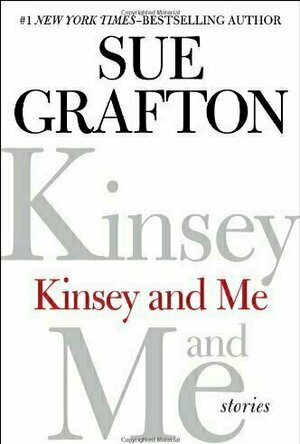
Kinsey and Me: Stories
Book
My name is Kinsey Millhone. I'm a private investigator, licensed, bonded, insured; white, female,...
Hazel (2934 KP) rated Good Samaritans [Audiobook] in Books
May 14, 2023
Oh my word ... what a book ... absolutely brilliant and the best audiobook I have listened to this year so far and, I think, it will take something remarkable to beat it!
This is a very dark, disturbing and extremely gripping story that will draw you in, shake you around and spit you out the other side and all the while you're thinking, what the heck and why am I enjoying this so much?!?
It's all kinds of wrong but so right and deliciously wicked and addictive.
I'm not even going to go into the story - you'll just have to buy it - but what I will say is that the characters are scarily normal which makes them ultra creepy, the story is riveting and there's some great twists that I didn't see coming and the build up of tension is palpable.
There are graphic descriptions of murder, a lot about suicide, mental health and a number of sex scenes (maybe too many if I'm honest and this is my only negative) so if any of these are triggers for you, I would steer clear.
Would I have enjoyed it as much had I read the physical book? I'm not sure if I'm honest because the narrator made all the difference and was absolutely perfect and brilliant. I fell in love with his voice from the beginning ... it was so contradictory to the content of what he was reading that it made the story all the more creepy and disturbing.
I haven't read or listened to any of Will Carver's work before and after listening to Good Samaritans, I won't make that mistake again and I must thank Bolinda Audio and NetGalley for enabling me to listen to and share my thoughts of Good Samaritans and introducing me to another excellent author.
This is a very dark, disturbing and extremely gripping story that will draw you in, shake you around and spit you out the other side and all the while you're thinking, what the heck and why am I enjoying this so much?!?
It's all kinds of wrong but so right and deliciously wicked and addictive.
I'm not even going to go into the story - you'll just have to buy it - but what I will say is that the characters are scarily normal which makes them ultra creepy, the story is riveting and there's some great twists that I didn't see coming and the build up of tension is palpable.
There are graphic descriptions of murder, a lot about suicide, mental health and a number of sex scenes (maybe too many if I'm honest and this is my only negative) so if any of these are triggers for you, I would steer clear.
Would I have enjoyed it as much had I read the physical book? I'm not sure if I'm honest because the narrator made all the difference and was absolutely perfect and brilliant. I fell in love with his voice from the beginning ... it was so contradictory to the content of what he was reading that it made the story all the more creepy and disturbing.
I haven't read or listened to any of Will Carver's work before and after listening to Good Samaritans, I won't make that mistake again and I must thank Bolinda Audio and NetGalley for enabling me to listen to and share my thoughts of Good Samaritans and introducing me to another excellent author.
Zoosk (5 KP) rated Stone Roses by The Stone Roses in Music
Dec 5, 2024
A Timeless Masterpiece
Every so often, an album comes along that feels like it was born out of pure magic, and The Stone Roses is one of those rare gems. From the opening notes of “I Wanna Be Adored” to the euphoric closer “I Am the Resurrection,” this debut album is a flawless journey through shimmering guitars, hypnotic rhythms, and an aura of defiance and mysticism.
What sets this album apart is its ability to transcend genres. It’s a perfect blend of jangly indie rock, psychedelic flourishes, and danceable grooves, creating a sound that feels fresh even decades later. John Squire’s guitar work is nothing short of genius—each riff and solo feels meticulously crafted yet completely effortless. Ian Brown’s vocal delivery, while unconventional, perfectly captures the swagger and yearning that permeates every track.
Tracks like “She Bangs the Drums” and “Made of Stone” are anthems of pure joy, brimming with melodies that seem to be pulled straight from the heavens. “Waterfall” is a blissful, sun-drenched escape, while “I Am the Resurrection” is a sprawling epic that perfectly captures the band’s rebellious energy. Every song feels essential; there’s no filler here.
Listening to this album feels like stepping into another world, one where everything is drenched in sunlight and possibility. It’s no wonder it became the defining soundtrack of the late ‘80s Madchester scene, but its influence stretches far beyond that. Bands like Oasis and Arctic Monkeys owe much of their sound and success to this record.
For me, The Stone Roses isn’t just an album—it’s an experience. It’s bold, timeless, and utterly captivating. I can’t think of a single way it could be improved, and for that reason, it’s a perfect 10/10.
What sets this album apart is its ability to transcend genres. It’s a perfect blend of jangly indie rock, psychedelic flourishes, and danceable grooves, creating a sound that feels fresh even decades later. John Squire’s guitar work is nothing short of genius—each riff and solo feels meticulously crafted yet completely effortless. Ian Brown’s vocal delivery, while unconventional, perfectly captures the swagger and yearning that permeates every track.
Tracks like “She Bangs the Drums” and “Made of Stone” are anthems of pure joy, brimming with melodies that seem to be pulled straight from the heavens. “Waterfall” is a blissful, sun-drenched escape, while “I Am the Resurrection” is a sprawling epic that perfectly captures the band’s rebellious energy. Every song feels essential; there’s no filler here.
Listening to this album feels like stepping into another world, one where everything is drenched in sunlight and possibility. It’s no wonder it became the defining soundtrack of the late ‘80s Madchester scene, but its influence stretches far beyond that. Bands like Oasis and Arctic Monkeys owe much of their sound and success to this record.
For me, The Stone Roses isn’t just an album—it’s an experience. It’s bold, timeless, and utterly captivating. I can’t think of a single way it could be improved, and for that reason, it’s a perfect 10/10.
Debbiereadsbook (1614 KP) rated The App Trap in Books
Sep 28, 2025
wonderfully funny!
I was gifted my copy of this book.
Mr Calley came under my radar as a narrator. He nows writes as well so I had to read this. And I have to say, I thoroughly enjoyed this. Here's why.
Danny reminded me so much of myself! For I too, have done the online dating thing and some of these very same scenarios ended up in this book! I could see myself, there in the moment, decidng how to get out of a particular situation, or remembering who I'm speaking to on any given day. I found it quite amusing.
Danny's mum is poorly, and I've been through that too, so that made me sad, to read it again. Not upset, just sad, remembering my mum, and her fight. She went through the online dating with me, and her favourite thing, every day, was a quick call to "see who I was talking to today"! Every. Single. Day!
It is, for a MM book, relatively clean, there is MUCH talk about smex and Danny's brother is amusing in that respect. But there is none really on page.
Mr Calley was at shiMMer this year, and he read a scene (maybe edited, slightly different) from this book, and it was hilarious listening to him. When I got to that scene in this book, I could hear him, you know?? It was fab. I would like to get my hands on the audio version of this too!
BUT
This book is written in British English, with a HUGE amount of British humour and jokes. I can see that some non-British folks might not get it, and will hate it. And that's THEIR loss, cos this is really a wonderfully funny read!
4 very VERY good stars
*same worded review will appear elsewhere
Mr Calley came under my radar as a narrator. He nows writes as well so I had to read this. And I have to say, I thoroughly enjoyed this. Here's why.
Danny reminded me so much of myself! For I too, have done the online dating thing and some of these very same scenarios ended up in this book! I could see myself, there in the moment, decidng how to get out of a particular situation, or remembering who I'm speaking to on any given day. I found it quite amusing.
Danny's mum is poorly, and I've been through that too, so that made me sad, to read it again. Not upset, just sad, remembering my mum, and her fight. She went through the online dating with me, and her favourite thing, every day, was a quick call to "see who I was talking to today"! Every. Single. Day!
It is, for a MM book, relatively clean, there is MUCH talk about smex and Danny's brother is amusing in that respect. But there is none really on page.
Mr Calley was at shiMMer this year, and he read a scene (maybe edited, slightly different) from this book, and it was hilarious listening to him. When I got to that scene in this book, I could hear him, you know?? It was fab. I would like to get my hands on the audio version of this too!
BUT
This book is written in British English, with a HUGE amount of British humour and jokes. I can see that some non-British folks might not get it, and will hate it. And that's THEIR loss, cos this is really a wonderfully funny read!
4 very VERY good stars
*same worded review will appear elsewhere
Hazel (1853 KP) rated Thirteen Reasons Why in Books
May 23, 2017
Trigger Warning
This eBook was provided by the publisher via NetGalley in exchange for an honest review
Recently filmed as a thirteen-part Netflix drama executively produced by Selena Gomez, Thirteen Reasons Why was the first novel by the award-winning author, Jay Asher. It is the type of book readers will either love or hate, but it should definitely come with a warning. This story is NOT an accurate representation of depression and suicide.
Yes, suicide. A teenaged girl has committed suicide, shocking everyone who knew her. No one could understand why, but thirteen people are going to find out. Clay Jensen is the ninth person to receive a box of thirteen audiotapes from Hannah Baker. However, Hannah died two weeks ago. As she premeditated taking her life, Hannah recorded thirteen stories involving people from her school that caused her to snowball into deep depression and despair. Desperate to find out why his name features in Hannah’s story, Clay begins listening to the tapes in order, putting together the events that led to Hannah’s death.
What follows is a heart-breaking story showing the impact individuals have on other people’s lives, often without realising it. In some cases, the characters only played a minor role in Hannah’s life, whereas others caused significant damage. The saddest thing is, Clay could have helped Hannah, but she had pushed him away.
At times, Hannah seemed like the horrible person, calling all these people out on petty little things, but these things, along with the more horrible ones, all built up to create a life that did not feel worth living. It is eye opening how much a small action, comment or rumour can so drastically alter someone’s future.
Bearing in mind that depression affects everyone differently and has numerous causes, some readers may feel disgusted at Hannah’s extreme action, but this is the fault of the author. Jay Asher fails to completely describe the emotional torment that Hannah felt, and only someone who may have been through a similar situation, or worse, will fully be able to understand the impact everything has had on her mental health.
As Hannah beleaguers her listeners, the thirteen people start to feel like the victims rather than the “attackers”, which is most probably not what the author was intending. Now, these people will have to live their lives believing they caused a girl to commit suicide when really they were only 1/13th of the reason. Although, before criticising this novel, keep in mind it is a work of fiction.
What is most painful about Thirteen Reasons Why, is not Hannah’s plight, but the reaction Clay has to hearing Hannah’s story. Unlike the other people Hannah accuses, Clay is not one of her antagonists; all Hannah wants to do is to say sorry.
It is up to the reader to judge whether Thirteen Reasons Why is worthy of praise or not. Those without an understanding of depression may dislike it on account of misunderstanding Hannah’s reasons, whereas others may feel insulted that she killed herself over things that could have been eased had she told someone. Personally, I understand where Hannah is coming from, and although I would not go to the extremes Hannah did, I do not think she was selfish or stupid or any other insult that may befall her.
The reason I give this book a good rating lies in the quality of writing. Asher seamlessly alternates between two narratives – Hannah’s story and Clay’s reaction and reflection. Although the author may not have clearly expressed Hannah’s emotions, he successful emphasises the grief and despair Clay feels listening to the cassettes. My main concern is that Thirteen Reasons Why will only be short lived. Audiotapes were already obsolete when the book was published, but soon will there be any new readers who know what a tape is?
Recently filmed as a thirteen-part Netflix drama executively produced by Selena Gomez, Thirteen Reasons Why was the first novel by the award-winning author, Jay Asher. It is the type of book readers will either love or hate, but it should definitely come with a warning. This story is NOT an accurate representation of depression and suicide.
Yes, suicide. A teenaged girl has committed suicide, shocking everyone who knew her. No one could understand why, but thirteen people are going to find out. Clay Jensen is the ninth person to receive a box of thirteen audiotapes from Hannah Baker. However, Hannah died two weeks ago. As she premeditated taking her life, Hannah recorded thirteen stories involving people from her school that caused her to snowball into deep depression and despair. Desperate to find out why his name features in Hannah’s story, Clay begins listening to the tapes in order, putting together the events that led to Hannah’s death.
What follows is a heart-breaking story showing the impact individuals have on other people’s lives, often without realising it. In some cases, the characters only played a minor role in Hannah’s life, whereas others caused significant damage. The saddest thing is, Clay could have helped Hannah, but she had pushed him away.
At times, Hannah seemed like the horrible person, calling all these people out on petty little things, but these things, along with the more horrible ones, all built up to create a life that did not feel worth living. It is eye opening how much a small action, comment or rumour can so drastically alter someone’s future.
Bearing in mind that depression affects everyone differently and has numerous causes, some readers may feel disgusted at Hannah’s extreme action, but this is the fault of the author. Jay Asher fails to completely describe the emotional torment that Hannah felt, and only someone who may have been through a similar situation, or worse, will fully be able to understand the impact everything has had on her mental health.
As Hannah beleaguers her listeners, the thirteen people start to feel like the victims rather than the “attackers”, which is most probably not what the author was intending. Now, these people will have to live their lives believing they caused a girl to commit suicide when really they were only 1/13th of the reason. Although, before criticising this novel, keep in mind it is a work of fiction.
What is most painful about Thirteen Reasons Why, is not Hannah’s plight, but the reaction Clay has to hearing Hannah’s story. Unlike the other people Hannah accuses, Clay is not one of her antagonists; all Hannah wants to do is to say sorry.
It is up to the reader to judge whether Thirteen Reasons Why is worthy of praise or not. Those without an understanding of depression may dislike it on account of misunderstanding Hannah’s reasons, whereas others may feel insulted that she killed herself over things that could have been eased had she told someone. Personally, I understand where Hannah is coming from, and although I would not go to the extremes Hannah did, I do not think she was selfish or stupid or any other insult that may befall her.
The reason I give this book a good rating lies in the quality of writing. Asher seamlessly alternates between two narratives – Hannah’s story and Clay’s reaction and reflection. Although the author may not have clearly expressed Hannah’s emotions, he successful emphasises the grief and despair Clay feels listening to the cassettes. My main concern is that Thirteen Reasons Why will only be short lived. Audiotapes were already obsolete when the book was published, but soon will there be any new readers who know what a tape is?
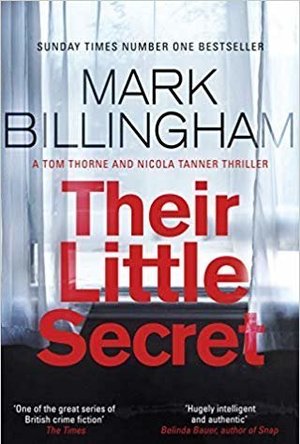
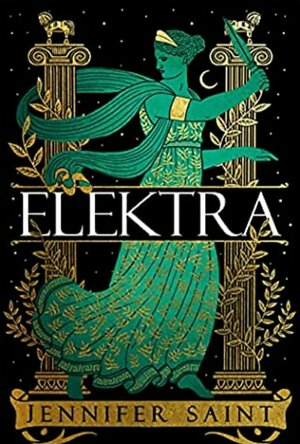

![The Hidden Village (Wartime Holland Book 1) [Audiobook]](/uploads/profile_image/0c0/c99b7ae5-3878-4d10-b5f0-d71634e510c0.jpg?m=1642341418)
![Good Samaritans [Audiobook]](/uploads/profile_image/8d3/35178302-459f-4b44-a863-84f356c318d3.jpg?m=1684075253)
